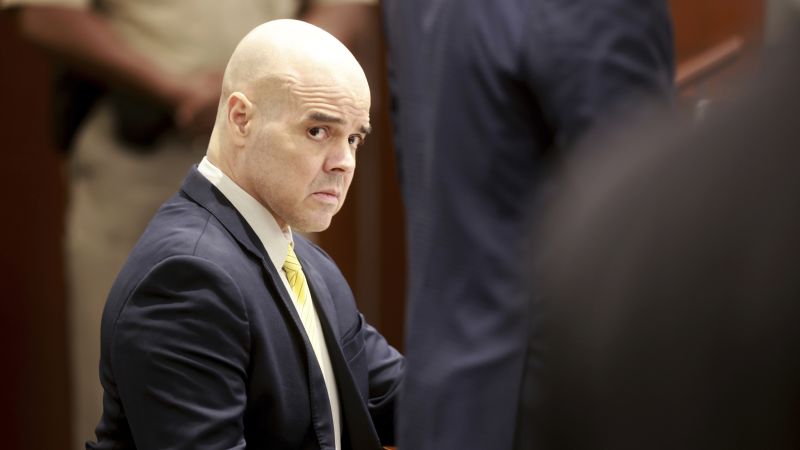The murder trial of Robert Telles, who is accused of killing investigative reporter Jeff German from the Las Vegas Review-Journal, presented a difficult challenge for the newspaper as they had to cover the trial of a suspect accused of murdering one of their own reporters. Telles, a former public administrator, faces the possibility of life in prison if convicted, despite proclaiming his innocence. The shocking death came after German had spent months covering turmoil and allegations of harassment inside Telles’ office, making the situation even more complex for the newsroom.
While newsrooms are familiar with tragedy and grief, covering the murder of a colleague in their own publication presents a unique challenge. The Review-Journal staff have been navigating this delicate balance for nearly two years, as they continue to provide objective coverage of German’s murder in their own backyard. Telles lost his Democratic primary race following German’s reporting, leading to his arrest and subsequent murder charges. The newspaper’s reporters and editors immediately went on a reporting offensive to find German’s killer and complete his unfinished work.
The Review-Journal delved into Telles’ past, uncovering a history of toxic and harassing behavior through investigative reporting. The newspaper sought to protect German’s privacy and sources during the coverage of the murder, ensuring that justice for German was sought while maintaining the confidentiality of his sources. As Telles’ trial commenced, the newspaper published several news articles focusing on the trial and German’s career, establishing him as a fearless investigative journalist dedicated to his work.
Despite the emotional challenges of covering the death of a colleague, newsrooms like the Review-Journal are adept at putting on their reporting hats and providing thorough coverage of difficult topics. Journalists are trained to process later and report first, which guides their approach to covering traumatic events involving their own staff. The Review-Journal declined to comment for this story, noting that they will let their reporting speak for them until the trial concludes, as they continue to navigate the complexities of covering their own reporter’s murder.
The Review-Journal’s staff is not alone in facing the difficulty of covering trauma affecting their colleagues, as newsrooms around the world have had to confront similar situations in recent years. From journalists killed in the line of duty to wrongful detentions and disappearances, media outlets have had to rally together to seek justice for their colleagues and bring attention to their plight. Despite the challenges, journalists are committed to covering these difficult events with professionalism and dedication, honoring the memory of their fallen colleagues.
The nature of the job often requires journalists to cover the deaths of their own peers with the same level of diligence and professionalism as any other news story. Despite the emotional toll, journalists are adept at separating their personal feelings from their reporting duties in order to provide accurate and thorough coverage of traumatic events. The Review-Journal and other newsrooms faced with similar challenges continue to honor the legacy of their fallen colleagues by seeking justice and holding those responsible accountable, all while navigating the complexities of covering such emotionally charged stories.













